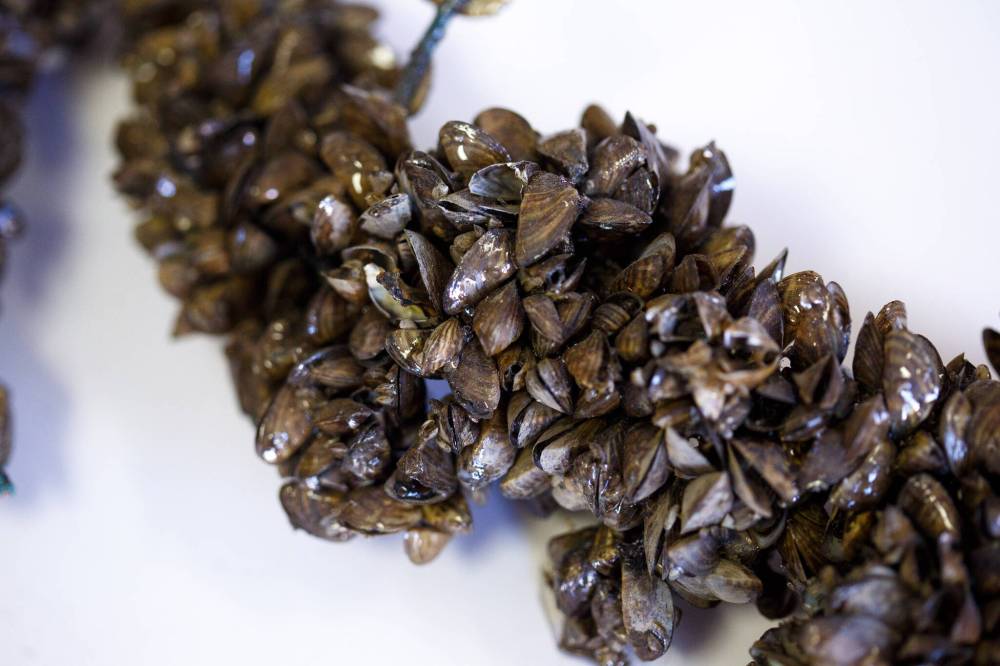Lake protection committees welcome forum
Advertisement
Read this article for free:
or
Already have an account? Log in here »
We need your support!
Local journalism needs your support!
As we navigate through unprecedented times, our journalists are working harder than ever to bring you the latest local updates to keep you safe and informed.
Now, more than ever, we need your support.
Starting at $15.99 plus taxes every four weeks you can access your Brandon Sun online and full access to all content as it appears on our website.
Subscribe Nowor call circulation directly at (204) 727-0527.
Your pledge helps to ensure we provide the news that matters most to your community!
To continue reading, please subscribe:
Add Brandon Sun access to your Free Press subscription for only an additional
$1 for the first 4 weeks*
*Your next subscription payment will increase by $1.00 and you will be charged $20.00 plus GST for four weeks. After four weeks, your payment will increase to $24.00 plus GST every four weeks.
Read unlimited articles for free today:
or
Already have an account? Log in here »
Hey there, time traveller!
This article was published 29/06/2023 (878 days ago), so information in it may no longer be current.
The chairs of the Killarney Lake Action Committee and the Pelican Lake Healthy Lake Committee are both giving the province’s newly announced Aquatic Invasive Species Advisory Forum their nod of approval.
The forum was announced on Monday as part of the Manitoba government’s strategy to stop the spread of aquatic invasive species (AIS) like zebra mussels and rusty crayfish.
The advisory forum will facilitate discussions and information sharing between stakeholders and the province’s AIS program unit. It will also provide feedback and recommendations on preventing the introduction of AIS into Manitoba and containing the spread within the province, according to a press release sent out by the provincial government.

The Manitoba government has put together an forum made up of stakeholders and experts to help stop the spread of aquatic invasive species such as zebra mussels in bodies of water across the province. (File)
Zebra mussels and other AIS can irrevocably damage lakes that they are introduced to, Killarney Lake Action Committee chairperson Betty Sawatzky told the Sun.
“Zebra mussels eat up all the food and the fish have nothing to eat. You destroy an entire water body with zebra mussels.”
Zebra mussels reproduce quickly and can impact a habitat’s food chain, clog water intake systems and damage watercraft, according to the Manitoba government’s website.
The small freshwater mussels, which originated from the lakes of southern Russia and Ukraine and were introduced to many countries worldwide in 1980, have already jeopardized the health of bodies of water in the eastern part of the province, including Lake Winnipeg, Lake Manitoba and the Red River.
The mussels are transferred from one body of water to another by boat or another watercraft if they’re not cleaned properly. Current provincial regulations say boats must be treated thermally, using either heat or cold, to kill zebra mussels and other invasive species. Thermal treatments should also be used to decontaminate water-related equipment.
Sawatzky is hoping that the forum will have a positive impact on spreading awareness about AIS and their effects on lakes and other bodies of water, and education on how to avoid contributing to their spread.
“It’s all about awareness,” she said. “We need more concerted effort into having our watercraft owners be more aware of what they’re doing with their watercraft.”
Trevor Maguire, the chairperson of the Pelican Lake Healthy Lake Committee, has been calling on the province to put in stricter regulations to protect its bodies of water for AIS recently. Maguire — one of the stakeholders appointed by the province to the forum — says it’s good to see the province taking the issue so seriously.
“It can’t hurt to have more input from more people,” he said. “It’s definitely a good thing that [Natural Resources and Northern Development Minister] Greg Nesbitt is doing this.
Keeping bodies of water free of AIS is a high priority for the Manitoba government, Nesbitt stated in the press release.
“We all have a role to play in stopping the spread of AIS, and this forum will bolster our ongoing co-operative work with stakeholders to protect the province’s waterways from species that harm the environment and the economy.”
Comprised of volunteer members recommended by more than 20 stakeholders for their demonstrated interest in maintaining healthy aquatic ecosystems, the forum’s first meeting took place on June 22.
The province is reminding all watercraft users to remain vigilant and do their part to protect bodies of water from the introduction and spread of AIS, including ensuring all watercraft and water-related equipment are cleaned, drained and dry after use in any water body in Manitoba, and decontaminated after being used in an AIS control zone or water body designated with restricted access.
New AIS inspection stations opened near Minnedosa and Ste. Rose du Lac earlier this month, complementing the existing inspection stations in Headingley, Selkirk, Eriksdale, The Pas and Wabowden. A Grand Rapids inspection station will open in early July. Failing to stop at a watercraft inspection station can result in a $672 fine.
Sawatzky hopes that the new inspection stations and forum will help the province keep Killarney Lake and other lakes clean and free from AIS.
“There is reason why the province is working so hard to curb this,” she said. “First, to stop the spread, second, to contain lakes that are affected, and third, to raise awareness.”
» mleybourne@brandonsun.com
» Twitter: @miraleybourne
